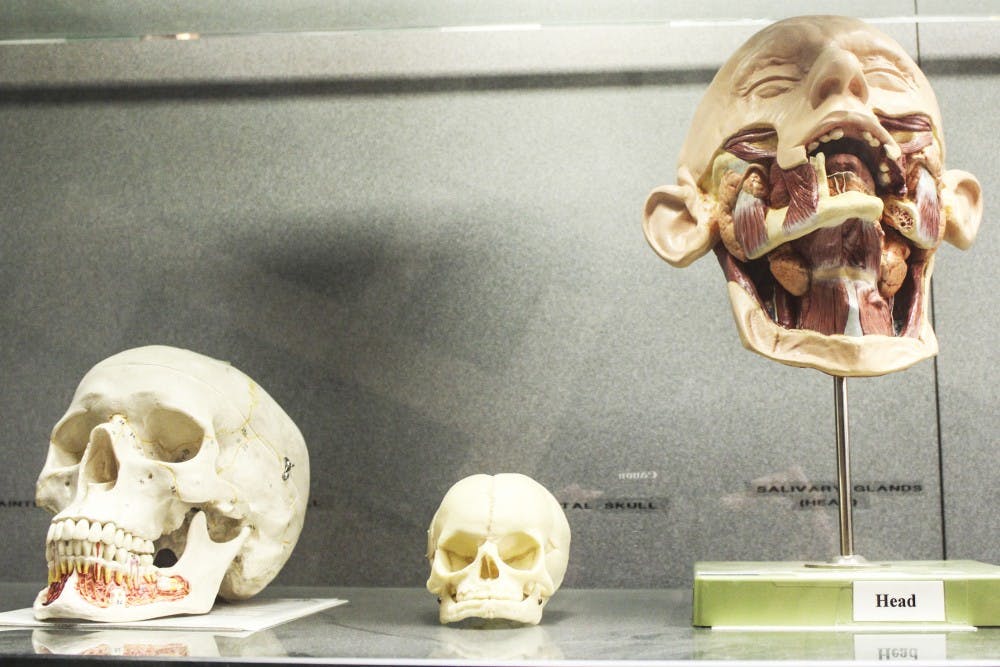The UNM Board of Regents has approved changes to the health benefits plan for University employees despite strong opposition from staff members.
As a result of the changes approved by the board, health care costs for UNM employees will increase by an average of 4.5 percent beginning July 1, University officials said.
Officials said that, earlier, an average premium increase of 6.4 percent had been projected due to the universally increasing cost of health care. The proposed changes that were officially approved by the Regents prevent this more drastic uptick by "minimally" altering employee benefits.
While deductibles, coinsurance and copays for health services will remain the same, according to official documents, the out-of-pocket maximum amount will increase. This means that the ceiling of costs that University employees will have to pay out of pocket before UNM covers health services in full will go up.
The ceiling price will increase from $2,250 to $3,000 for individuals and $4,500 to $6,000 for families, according to the documents.
Copayment price for brand-name drugs will also increase. Currently, employees on UNM's healthcare plan pay a flat amount of $35 or $55, depending on the drug. However, after July 1, they will pay anywhere from $35 to $110.
According to a UNM press release, these changes are aimed at managing health care costs for both the University and those who choose to participate in UNM’s employee and post-retirement health plans.
“In our approach, we are not changing benefits for our employees or current retirees,” said David Harris, executive vice president for administration at UNM.
“UNM will continue to provide comprehensive, quality care through a variety of health care plans. Through the careful deliberation of the Health Plan Committee, and input from faculty and staff leadership, we now have recommendations for long-term adjustments that will help us achieve solvency while maintaining excellent, market-competitive health benefits,” he was quoted in the statement as saying.
However, UNM employees - both current and retired - strongly oppose the changes that will take effect at the start of the next fiscal year.
President of the UNM Retiree Association Carol Stephens said that the proposed changes to the health benefits were flawed.
“The biggest flaw was not to include our renowned health care professionals in these recommendations and decisions or to include the faculty and staff benefits committee, which was not involved or informed of this process,” she said.
Get content from The Daily Lobo delivered to your inbox
Stephens said that the proposed changes to the medical plans are going to hit those who are least capable of handling them. She specifically cited the proposed reduction in benefits for diabetics as a lose-lose situation.
“They will now have to financially manage their disease as opposed to optimally managing their diabetes. The resulting claims from the medical crisis, I think, will far exceed the $78,000 the University projects it will save,” she said. “I urge (the Board) to reconsider that change in particular. It’s a high risk pool."
The Board of Regents ended up rejecting the proposal that diabetics should be charged for prescriptions.
Carlotta Abeyta, who works in the School of Public Administration, said she did not think that UNM leadership took adequate time to consider the impact that these changes will have on staff.
“Every time they want to increase benefits for faculty and staff, what impact does that have? Not a great impact on faculty because they make much higher salaries, but we are talking about staff members, the custodial staff and groundskeepers," she said. "They don’t make a lot of money. They can be the head of a household of four or five and they are living in poverty. Our UNM staff is living in poverty and I don’t think it is the right consideration."
Sayyed Shah is the assistant news editor at the Daily Lobo. He can be contacted at assistant-news@dailylobo.com or on Twitter@mianfawadshah.






